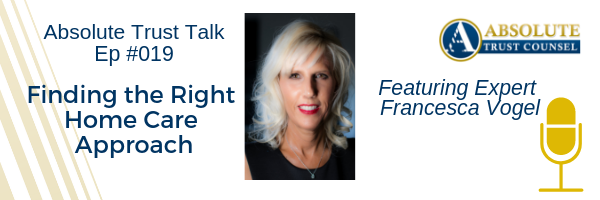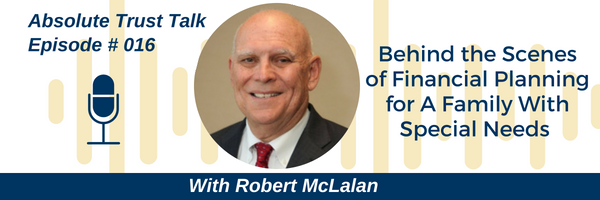


IRAs, 401(k)s and other tax-deferred retirement accounts allow your savings to grow tax-free until you retire. The year after you become age 70 ½, you must begin taking required minimum distributions from your retirement accounts, and you will pay ordinary income taxes on all distributions. The rest of the money that stays in your account continues to grow tax-free until…

In this episode of Absolute Trust Talk, Kirsten welcomes attorney Bob Gonser to the show. Bob’s practice focuses on matters involving disputes between investors and their financial advisors. Bob typically works on a contingent fee basis and has successfully handled hundreds of cases for his clients whose investement accounts have been mismanaged resulting in the loss of irreplaceable assets. Kirsten…
Continuing care retirement communities (CCRCs) often require new residents to pay an entry fee in exchange for lifetime housing and priority access to healthcare, in addition to a monthly fee. These entry fees can be in the hundreds of thousands of dollars. In many cases, a sizable portion of the entry fee may be refundable to the resident if they move…


Eighteen-year-old Sarah tried to calm her excitement. She had been named the beneficiary of her Grandpa Jack’s IRA (Individual Retirement Account). While all of the grandchildren had been named in Grandpa Jack’s will, she was the only one to get a separate gift. Visions of a new car and new clothes began to dance through her head. “Your grandfather named…
The Tax Cuts and Jobs Act, passed at the end of 2017, significantly alters many of the deductions to which we have become accustomed. CPA’s and financial planners continue to unravel the new laws but one of the new changes is clear. The new tax law will reduce the tax benefit of charitable giving for many individuals. However, the changes…
